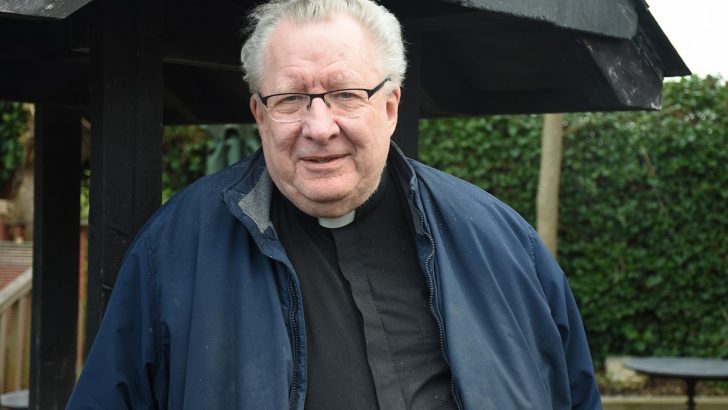I was born in 1945 at the end of World War II. As I grew up, I heard about the Holocaust. Descriptions of the greatest crime in history disturbed me deeply during my teenage and college years. I was ordained a priest in 1971. At that time, I suspected that references to the Devil were a metaphorical way of speaking about the dark side of the unconscious mind and the systemic evils inherent in the unjust and oppressive structures of society. I tended to understand the evil of the Holocaust in those reductionist and rationalistic terms.
In 1972, I went to Germany on holidays with a priest friend of mine. We mainly got around by hitching lifts. On one occasion we were dropped off outside Dachau concentration camp, which is on the outskirts of Munich. Having visited the museum, we went to see the gas chambers and crematoria. Not only did they resurrect my troubled, adolescent feelings about the Holocaust, I seemed to have a direct, gut level sense of the mystery of evil as I stood there. At that moment I spontaneously felt that the Holocaust was demonic in origin, and that my sense of God was inadequate in comparison to such a horror.
Some time later in 1974 I had a Pentecostal type experience when the God I had desired for two years became the God I experienced through an unmerited outpouring of the Holy Spirit. There was a great paradox implicit in that anointing. The more I became consciously aware of the incomprehensible love of God, the more I became aware of the insidious existence and activity of the Devil.
Besides suffering from psychological and physical problems, some people suffer from spiritual oppression and even possession by evil spirits. When people are oppressed, they suffer from a kind of spiritual neurosis where only part of their personality is subject to demonic influence. When people are possessed, and I have to say it is a very rare occurrence, they suffer from a form of spiritual psychosis because the devil seems to take over their entire personalities.
Oppression can be overcome by means of:
– Self-deliverance (which can be engaged in by any oppressed person)
– Simple exorcism (which can be performed by lay people)
Possession can be overcome by means of:
– Solemn exorcism (which can only be performed by a priest appointed by the bishop)
People who no longer believe in a supernatural dimension to life often will explain demonic activity in purely psychological terms. It would probably be true to say that many troubled people mistakenly attribute their afflictions to the activity of evil spirits when in fact they are psychological in origin.
Up to half of Freedom from Evil Spirits focuses on how to be delivered from the malevolent influence of the devil. As a pastoral guide it is relatively brief. It does not pretend to be comprehensive or exhaustive. Although I know a certain amount about deliverance, I am painfully aware of how much I don’t know, not only in a theoretical way, but more importantly at a practical, experiential level. I am also aware how true it is that people don’t care how much you know until they know how much you care. Because I do really care, I felt that I should share what I already know in the hope that it might prove to be helpful to those who know even less than I do.
Fr Pat Collins will give a lecture based on his new book Freedom from Evil Spirits (Columba Books) on Wednesday, April 17th from 7-8.30pm in Newman University Church, 87A St Stephen’s Green, Dublin 2. Tickets €10. To avoid disappointment, book in advance here, or contact 01 687 4096 or info@columba.ie


 Fr Pat Collins CM
Fr Pat Collins CM 